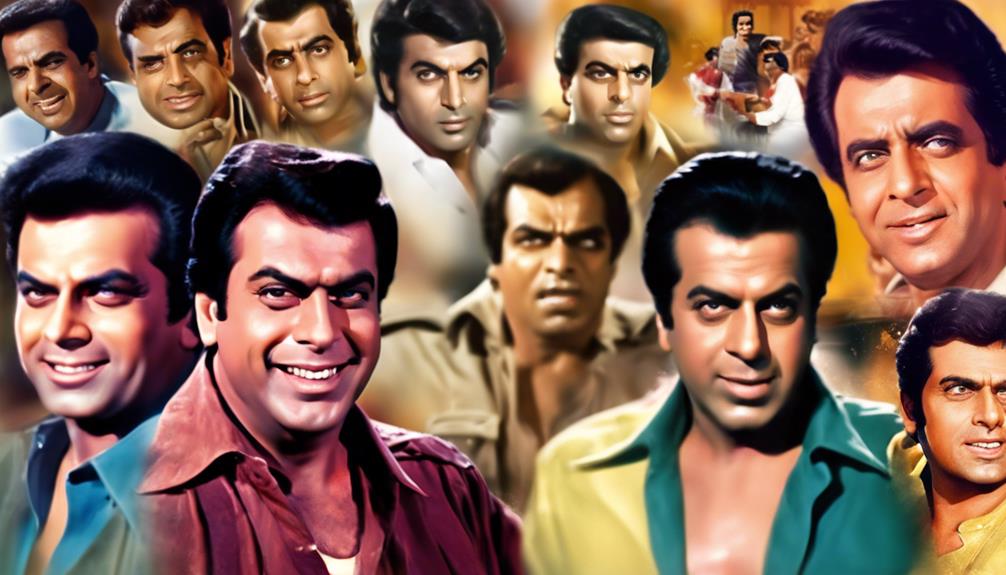Michelle Williams sparked a fresh debate when she questioned Brokeback Mountain’s loss to Crash at the Oscars, asking, “What was Crash?” Many share her confusion, as Brokeback Mountain is celebrated for its groundbreaking portrayal of a gay love story and deep emotional resonance. Critics have noted how Crash’s reputation has faded over time, making its win seem even more perplexing. The discussion around this Oscar upset continues to shape conversations about representation in cinema today.
Key Takeaways
- Michelle Williams’ confusion reflects widespread disbelief about Crash winning Best Picture over Brokeback Mountain at the 2006 Oscars.
- Brokeback Mountain’s groundbreaking portrayal of a gay love story marked a significant cultural shift in cinema.
- Critics argue that Crash’s reputation has diminished over time, making its Oscar win feel like an upset.
- Despite losing Best Picture, Brokeback Mountain’s artistic achievements were recognized, winning Best Director for Ang Lee.
- The ongoing discussion about both films underscores Brokeback Mountain’s lasting legacy in LGBTQ+ representation and cultural importance.

Why did Brokeback Mountain lose the Best Picture Oscar to Crash at the 78th Academy Awards in 2006? The decision has baffled many, including Michelle Williams, who famously questioned, “What was Crash?” This confusion reflects a broader sentiment within the film community. Brokeback Mountain, with its groundbreaking portrayal of a gay love story set against the backdrop of the American West, resonated deeply with audiences and critics alike. Its emotional impact and cultural significance marked a pivotal moment in cinema.
Despite the loss, Ang Lee won the Best Director award for Brokeback Mountain, further highlighting its artistic merits. However, the film’s defeat in the Best Picture category remains a topic of heated debate. Many critics and viewers alike argue that Crash’s win feels more like an upset, particularly as time has revealed a diminished reputation for Crash compared to Brokeback Mountain’s lasting legacy.
Ang Lee’s Best Director win for Brokeback Mountain highlights its artistic brilliance, yet its Best Picture loss to Crash sparks ongoing debate.
Williams’ bewilderment captures the essence of public opinion, which often questions how a film like Crash could overshadow the profound narrative and emotional depth of Brokeback Mountain. Historically, the latter is viewed as having greater cultural and cinematic importance, a sentiment echoed in various discussions since the awards.
The ongoing debate underscores Brokeback Mountain’s role as a landmark film in LGBTQ+ representation, contributing significantly to a cultural shift towards acceptance and visibility in mainstream cinema. The film’s impact extends beyond its Oscar nominations; it continues to influence contemporary storytelling about LGBTQ+ relationships.
Its emotional resonance has left a lasting imprint on viewers, making it a classic in the film industry. As you reflect on the Oscars, consider how Brokeback Mountain’s legacy shapes discussions about representation and the evolving landscape of cinema, reminding us why Williams’ question still resonates today.
Frequently Asked Questions
What Awards Did “Brokeback Mountain” Win Besides the Oscars?
“Brokeback Mountain” won numerous prestigious awards beyond the Oscars.
You’d find it snagged Golden Globes for Best Motion Picture – Drama, Best Director, and Best Screenplay.
It also earned accolades from the San Francisco Film Critics Circle and the Satellite Awards, including Best Film and Best Original Song.
The film received Outstanding Performance Awards at the Santa Barbara International Film Festival and numerous honors for its significant cultural impact and artistic merit.
What Year Did “Crash” Win the Best Picture Oscar?
In the world of cinema, it’s hard to forget the shockwaves of 2006 when “Crash” clinched the Best Picture Oscar at the 78th Academy Awards.
You might recall the uproar it caused, overshadowing “Brokeback Mountain,” which many saw as a more groundbreaking choice.
This surprising win not only stirred debates but also left an indelible mark on the film industry, shaping discussions around awards and their impact on cultural narratives for years to come.
Who Directed “Brokeback Mountain”?
You might be surprised to learn that “Brokeback Mountain” was directed by Ang Lee.
Known for his ability to explore universal themes, Lee brought emotional depth to the film, which focused on the complex relationship between two cowboys.
Initially hesitant about the project, he later recognized its artistic potential.
His direction earned him an Academy Award for Best Director, showcasing his skill in capturing the intricacies of human emotions and societal challenges.
What Is the Plot of “Crash”?
Imagine you’re scrolling through social media, and you stumble upon a film that dives deep into the messy realities of life.
*Crash* intertwines multiple stories of characters from diverse backgrounds in Los Angeles, spotlighting racial tensions and the impact of stereotypes.
Key moments, like car crashes, serve as catalysts for character transformations, exploring themes of empathy and redemption.
As you watch, you’ll find yourself questioning your own biases and the complexities of human connection.
How Did Critics React to “Brokeback Mountain” Upon Release?
Critics hailed *Brokeback Mountain* as a beautifully epic Western, praising its heartbreaking love story and the performances of Heath Ledger and Jake Gyllenhaal.
You’d notice the film’s stunning direction and compassionate storytelling received high marks, reflected in its 88% rating on Rotten Tomatoes.
Reviewers celebrated its emotional depth and cultural significance, recognizing it as a milestone in gay cinema.
Conclusion
As you reflect on Michelle Williams’ poignant question about “Brokeback Mountain’s” Oscar loss, it feels like a haunting echo of unfulfilled potential. The film, a powerful tapestry of love and loss, deserved to shine brighter than the shadows cast by “Crash.” Williams’ inquiry resonates, reminding you that sometimes, the voices that should be celebrated are drowned out by the noise of convention. In the end, it’s a bittersweet reminder that art can be both a treasure and a tragedy.









